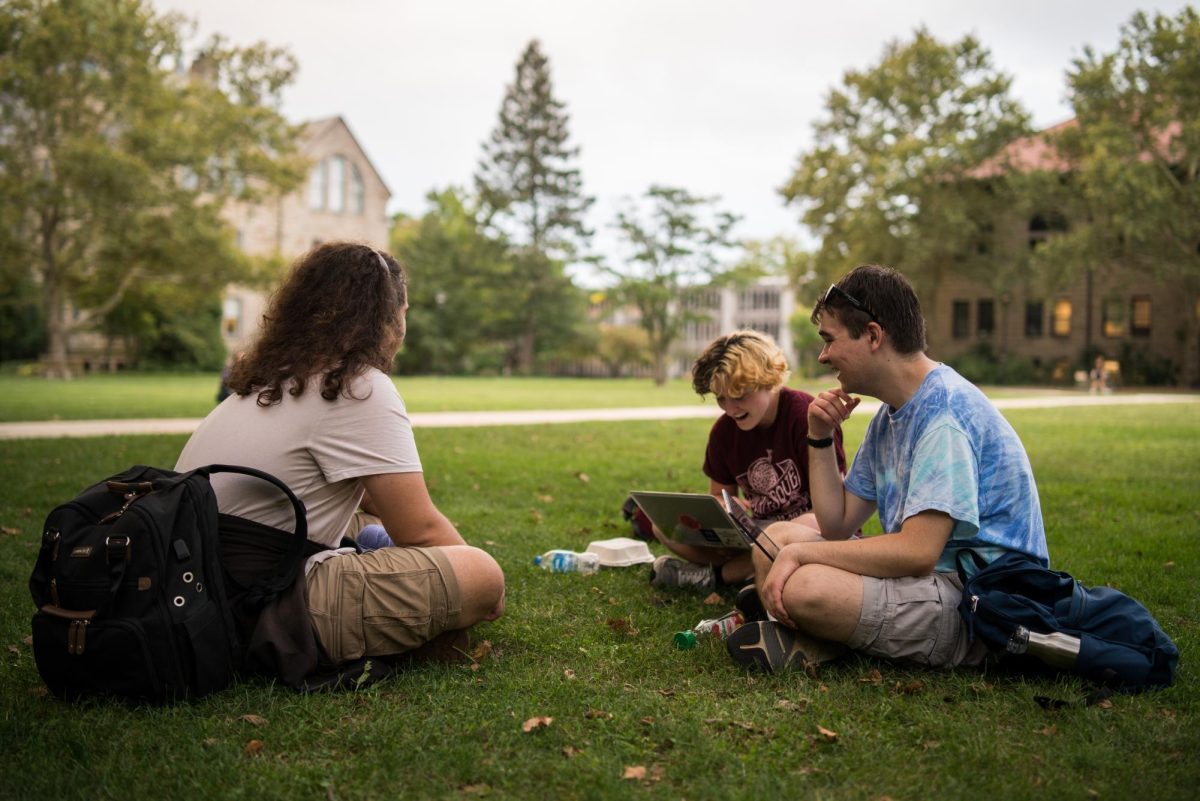If you spend more than a few hours walking around Oberlin’s campus, you will likely start to notice a strange phenomenon. It’s not outwardly obvious, though once you notice it, you probably won’t be able to stop. When Oberlin students pass each other on the sidewalk, or reach around one another for food at DeCafé, we tend to make eye contact then quickly look away. No smile, no nod, nothing. As someone who grew up in small-town Ohio, experiencing this was definitely somewhat of a culture shock.
In general, there is a definite difference in the way that Obies and Midwestern “townies” interact with one another. Over 90 percent of Oberlin students come from out of state, with the majority being from California or New York. Compare that with the Oberlin residents, where almost everyone was either born in Ohio or lived here for a significant portion of their lives. While there are many similarities between town and gown, there is an undeniable difference in certain regional habits. Almost to a fault, people in the Midwest tend to live up to their reputation of being, for the most part, a kind and polite people.
This constant friendliness is often dubbed “Midwestern Nice” by those from the areas themselves. Those from out of state might call it “obnoxiously friendly,” or “overwhelmingly polite,”or“why-is-this-stranger-waving-at-me-please-stop.” For students who do not hail from the Midwest, suddenly seeing overly friendly strangers everywhere might be a culture shock, especially for those from bigger cities.
As a piece of advice, when you are in the town itself, expect strangers to smile at you. Expect people to nod and greet you with a smile and a “Good morning!” Don’t be surprised if the cashier asks you a multitude of questions, and genuinely seems interested in your response. Expect people to go out of their way to help you if they see you struggling. The town of Oberlin seems to have a real sense of community, as shown by the many festivals, town-wide activities, and by the fact that almost everyone knows each other’s name.
Unfortunately, once you cross the threshold from city to school, the nature of the community changes. One of the more common complaints about the atmosphere at Oberlin College is that it can seem very cliquey. People tend to find “their people,” and then not branch out much past that. While having a group of supportive friends is great, it can’t hurt to reach out to other people you think might be fun to be around. Making small talk with those you don’t totally know could lead to a new, possibly lifelong, friendship.
On a more institutional level, it can also be easy for students at Oberlin to feel isolated, as we don’t really have anything that unites the entire student body. We’re not like The Ohio State University, whose students deck themselves out in scarlet and gray every Saturday night to support their AP Top 25-ranked football team. We don’t “Roll Tide,” or “Gator Chomp,” or even happen to own a 450-pound tiger named Mike. While this is not necessarily a totally bad thing, as the lack of sports and Greek life-based culture makes this school somewhat unique, it does make it more difficult for students to find an outlet to express their school spirit.
However, the one thing we do have over the bigger, sportier schools is the size of our campus. You will almost certainly see at least one person you know, or even just recognize, on your way to class, the Rathskeller, or anywhere in between. This is the easy part: everyone can smile and wave at their friends. It’s interacting with every single other person that you don’t know that becomes difficult.
It’s understandable that it might take some time to muster up the courage to smile at someone you’ve never met before. I get it. It’s a daunting task. Still, the feeling you get when that person smiles back is well worth any trepidation you might have beforehand. Additionally, positively interacting with strangers can be a helpful tool to combat social anxiety. Smiling in general has also been shown to positively influence your mood, as shown by the facial feedback hypothesis. Life is short! Smile while you still have teeth.
Now, nobody is saying that you need to have a twenty-minute conversation with each person you pass, like some Midwesterners (myself included) have the habit of doing. However, we can easily take a page out of the Ohio Book of Politeness, and take a few seconds out of our day to give each other a quick nod and smile as we pass. This simple action has the capability to change the trajectory of someone’s day, and maybe even the culture of an entire campus.


